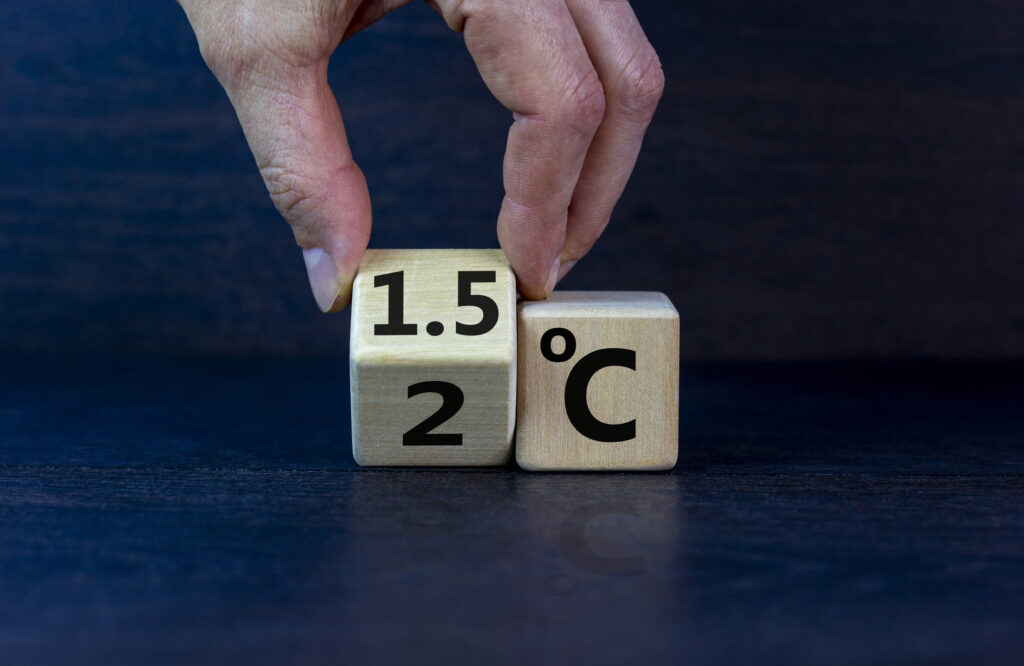Opinion: We Are Going Over 1.5°C. Now What?

Photo: istock
Love, Justice And Climate Change

When the nations of the world met at the UN climate Conference in Paris in 2015, they seemed ready to settle on a goal of keeping global temperature rise below 2.0°C , but the poor and small island nations kept pushing for a goal of 1.5°C. Countries like Maldives said that 2.0°C was a death sentence for their island nation and many others. Just before the end of the conference the nations committed to keeping global warming “well below 2°C” and “pursuing efforts to limit the temperature increase to 1.5°C above pre-industrial levels.” Ever since then, the 1.5°C goal has been “a symbol of mobilization and hope.” “1.5° has become central to both activist campaigns and scientific analysis,” as Tom Athanasiou, of EcoEquity puts it.
Difference Between 1.5 and 2.0°
In 2018 the UN scientific body, the IPCC, published a special report comparing the effects of global temperatures increasing 1.5°C versus them increasing 2.0°C. Compared to 1.5°C, at 2.0°C we would see close to three times as many people regularly exposed to extreme heat; we would lose twice as many plant and vertebrate species and three times more insects; the marine fishing yield loss would be two times worse and crop loss more than two times worse, leading to vastly greater food insecurity. Permafrost melting would be 38% worse (emitting more methane) and ice-free arctic summers would be ten times worse. The increases in poverty and climate refugees at 2.0° would be severe.
1.5° was a goal that scientists repeatedly said was technologically possible to achieve, but that would require an unprecedented rate of change and political will. A tremendous amount of work on the part of activists, scientists, engineers, politicians, and people everywhere has gone into trying to keep global warming from exceeding that limit.
We Are Going Over
Despite these efforts, it is now clear that the global temperature increase is going to go over 1.5°C. I do not write this to discourage you or lead you to despair. I write it because I think we need to know the truth and start thinking about what it means. It does not mean the end of the world or that humanity is doomed. It does mean that more species will go extinct, that some island nations will most likely eventually be submerged by sea level rise, and it does mean that catastrophic climate change will cause more disruption, suffering and fatalities. The consequences are indeed terrible.
It does not mean that we should now give up. If anything, it means that our efforts to reduce emissions, sequester carbon, and live sustainably are more important than ever. It is time to redouble our efforts, to get more people engaged in the climate movement, to demand bolder action from our governments, to take the individual steps we can take, and to build the political muscle and will to stop the corporations and wealthy individuals who continue to destroy the climate as they put their profits ahead of the welfare of all of humanity.
Feel, Then Rise To Action
If you feel pulled to sink into despair, I urge you to weep, to tremble with fear, and to rage, instead. We get to feel whatever deep pain we have about this situation. But the people in frontline communities all over the world need us not to linger too long with our pain, but rather to rise together, to fight together, energized and courageous, for a livable world for all people and other living things.
Always Lives To Be saved
A few years ago I was asking what it would mean if we failed to keep warming to 1.5°C. A wise climate activist said to me, “Russ, there will always be lives to be saved by slowing global warming.” His words have stayed with me, as I hope they will with you. We have important work to do together in the coming years, and all of us are needed.
It would be reasonable to ask at this point, how I know we are going to go over 1.5°C. The IPCC summary report issued in March 2023 explicitly said, “the best estimates of the time when the level of global warming of 1.5°C is reached lie in the near term (2021-2040).” A new report from the University of Hamburg says “Limiting global warming to 1.5 degrees Celsius is currently not plausible.” A UN Environment Programme report recently said there is “no credible pathway to 1.5°C.”
Do We Go A Little Over Then Back Down, Or …
When the IPCC report came out, Peter Thorne, an Irish climate scientist said, “Almost irrespective of our emissions choices in the near term, we will probably reach 1.5 degrees early in the next decade.… The real question is whether we reach 1.5 degrees and then maybe go a little bit over and come back down or whether we go blasting through one and a half degrees and two degrees and keep on going.”
1.5° Is Still A Target
Tom Athanasiou recommends that we continue to commit to 1.5°C as our target, but that we understand that this means we will overshoot it (hopefully by as little as possible) and then seek to return to it “on the way to lower, safer levels of warming.” This will still be an immense challenge and will require “doubling down, and even tripling down on everything we’ve been saying about the necessity of justice and ambition,” according to Basav Sen, the climate-justice project director at the Institute for Policy Studies.
I’ll have more to say in future posts about why we have not succeeded in keeping below the 1.5°C goal, reasons to be encouraged about the possibilities for accelerating our progress, and what will be required. For now, let’s reach for more connection with others who care about climate justice and remember we are in this together. There are roles for each of us going forward.
Russ Vernon-Jones was principal of Fort River School 1990-2008 and is currently a member of the Steering Committee of Climate Action Now-Western Massachusetts. He blogs regularly on climate justice at www.russvernonjones.org.

There are three comments to offer with this op-ed. (1.) On a local level Amherst dumps thousands of tons of methane generating food waste that should be composted. Municipal food waste composting is commonplace in many places but why not Amherst? Although Amherst is considering composting, there is no firm commitment to do so. We have to practice what we preach. (2.) Contrary to the premise in this op-ed, climate change is very much destroying our planet in so many horrible ways. Irreversible changes and extinctions that are creating more damaging impacts. One example, India will or has reached temperatures where human perspiration will not cool the human body. A recent Hampshire Gazette article reported on what local farmers are doing to maintain food and crop production with this climate crisis. Our national media censors this scary issue continuously. We even see weather reporters refusing to take positions on climate change. (3.) Senator Comerford recently sponsored a hearing on carbon reductions and her efforts deserve more support to see if carbon capture has value. The New York Times just reported on this uncertain international issue and all of the efforts to capture carbon. Net zero is not enough!